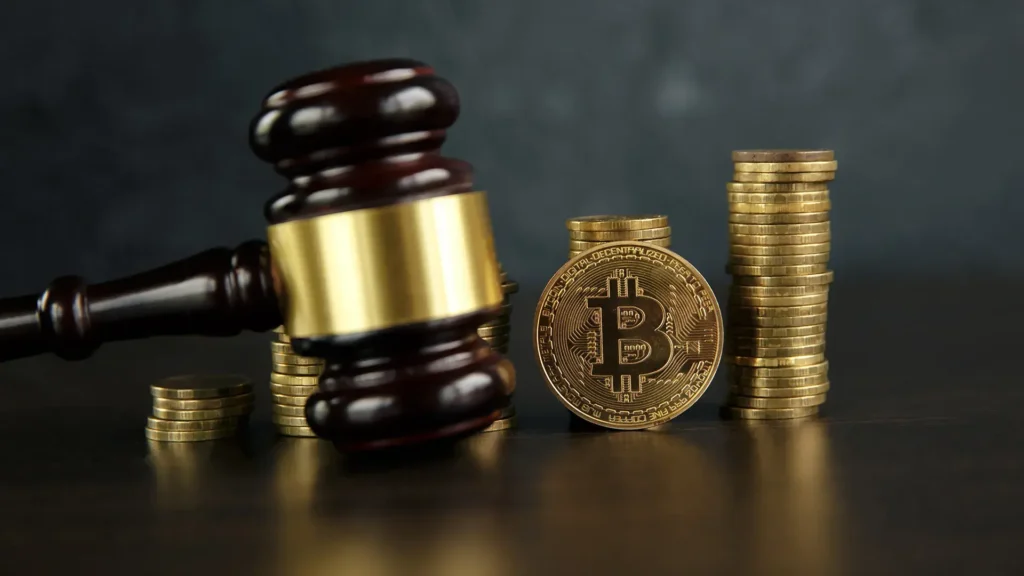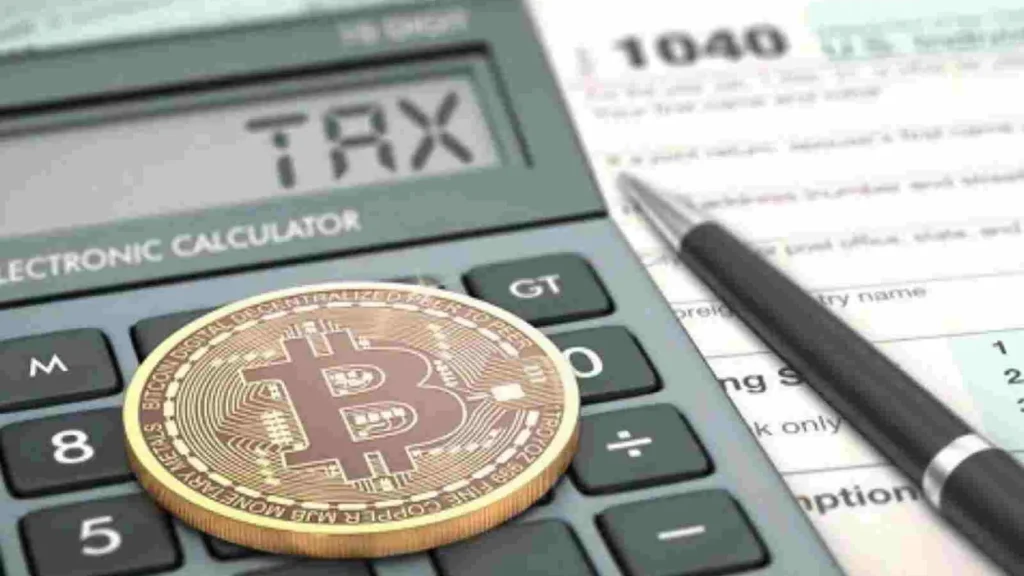Crypto Tax in Dubai 2025: How Does Crypto Tax Work In Dubai?
Navigating the world of cryptocurrency taxation can be complex, but Dubai offers a unique environment for crypto investors.
The United Arab Emirates’ favorable tax regime, especially in Dubai, makes it an attractive destination for those involved in crypto trading.
Dubai imposes a 0% capital gains tax on crypto profits, which can lead to significant savings compared to other countries where taxes on short-term capital gains can be as high as 37%.
Dubai is not just a tax haven but also a growing hub for the crypto community.
The city hosts numerous crypto meetings and exhibitions, drawing enthusiasts and investors worldwide.
To take full advantage of Dubai’s tax benefits, you must reside in Dubai for at least 183 days a year to be considered a tax resident.
This requirement encourages a more profound commitment and integration into the vibrant local crypto ecosystem.
While personal income and capital gains from cryptocurrency are tax-free, the UAE funds its government through other means, such as visa fees.
Permanent residency is a privilege for Emiratis, so you must navigate the rules of local residency and business setup.
Despite this, the tax advantages and dynamic crypto community make Dubai a compelling destination for cryptocurrency investors.
Understanding Crypto Taxation in Dubai

Dubai’s approach to cryptocurrency taxation provides significant incentives for investors, supported by favorable tax policies and a clear regulatory framework.
Tax Residency in the UAE
Establishing tax residency in the UAE is crucial for benefiting from its tax policies. You benefit from zero percent personal income tax and capital gains tax as a tax resident.
To qualify, you must meet specific residency criteria, such as spending at least 183 days per year in the UAE. Residency can also be obtained via business or property investment.
Capital Gains and Income Tax Rates
Dubai’s tax system is highly favorable for crypto investors. Individual investors are exempt from capital gains and personal income tax on cryptocurrency transactions.
This includes gains from selling, staking, and mining digital assets.
Essentially, your gross income from crypto closely matches your net income due to these tax exemptions, making Dubai an attractive destination for crypto enthusiasts.
Regulatory Environment for Digital Assets
Dubai offers a robust regulatory framework for digital assets. The Virtual Assets Regulatory Authority (VARA) oversees cryptocurrency activities, ensuring transparent and fair trade practices.
Regulations mandate compliance with anti-money laundering (AML) and combatting the financing of terrorism (CFT) laws. This regulatory clarity boosts investor confidence and fosters a secure environment for cryptocurrency investments.
Regulatory Framework for Cryptocurrencies

Dubai has established a comprehensive regulatory framework for cryptocurrencies to ensure a secure and compliant environment. This structure involves multiple regulatory bodies overseeing various aspects of the crypto industry.
Dubai Financial Services Authority (DFSA)
The Dubai Financial Services Authority (DFSA) is crucial in regulating financial services within the Dubai International Financial Centre (DIFC). It has implemented detailed guidelines for crypto asset businesses to promote transparency and investor protection.
The DFSA’s regulations require crypto companies to obtain licenses, adhere to anti-money laundering (AML) standards, and implement strict security controls.
These measures are designed to prevent fraud, ensure the market’s integrity, and protect investors.
By enforcing these regulations, the DFSA aims to create a secure environment for crypto-related activities, fostering confidence among investors and businesses.
Securities and Commodities Authority (SCA)
The Securities and Commodities Authority (SCA) oversees the broader financial markets in the UAE and has also been proactive in crypto.
It develops regulations for crypto trading platforms and other virtual asset service providers across the UAE.
In addition to requiring licenses, the SCA mandates compliance with robust AML and counter-terrorism financing (CTF) protocols. This includes stringent reporting requirements and thorough due diligence processes.
The SCA’s regulatory approach ensures that all crypto transactions and activities within its jurisdiction are conducted transparently and securely, contributing to the overall integrity of the financial system.
Virtual Asset Regulatory Authority
The Virtual Asset Regulatory Authority (VARA) is a pioneering entity dedicated to regulating the virtual assets sector in Dubai.
Established under Law No. 4 of 2022, VARA has developed a comprehensive framework for licensing and overseeing crypto firms.
VARA’s regulations cover all aspects of the virtual asset lifecycle, from issuance and trading to custody and marketing. Firms must comply with stringent security standards, risk management practices, and disclosure requirements.
Through proactive regulation, VARA aims to position Dubai as a global crypto hub, ensuring that the city remains attractive to international investors and entrepreneurs while maintaining high regulatory clarity and compliance standards.
Tax Incentives for Businesses and Investors

Dubai offers significant tax benefits for businesses and investors, making it an attractive destination for cryptocurrency activities. With zero personal income tax and capital gains tax, there are substantial savings for expatriates and companies.
Free Zone Advantages for Crypto Businesses
Dubai’s free zones play a crucial role in its appeal as a tax haven.
Businesses in these zones enjoy 100% foreign ownership, no personal income tax, and no capital gains tax. Additionally, there are exemptions from import and export duties.
Cryptocurrency companies benefit from the strategic location, world-class infrastructure, and simplified reporting requirements.
These advantages encourage innovation and position Dubai as a growing hub for crypto enterprises. Free zones provide a seamless environment for setting up and running your business with considerable tax savings.
How Much Crypto Tax In Dubai?
Understanding the tax implications of your crypto investments in Dubai is crucial. With favorable tax laws, investors can benefit from 0% tax on personal income, including gains from cryptocurrency disposals.
Calculating Taxes on Crypto Investments
In Dubai, individual crypto investors can enjoy a 0% tax rate on personal income. No taxes are levied on crypto gains from disposals, staking, or mining.
However, you should keep detailed records of all transactions. This includes dates, amounts, purpose (investment, personal use), and associated fiat currency values.
This meticulous documentation ensures you remain compliant with local tax regulations.
Residency and Tax Benefits for Crypto Traders
As a tax resident in Dubai, you benefit from zero percent taxes on personal income and crypto gains. This tax haven status is a significant draw for crypto investors.
Non-residents do not receive the same tax benefits, so residency is crucial for maximizing crypto profits without tax liability. Ensuring compliance with residency requirements, such as spending a minimum number of days in Dubai, is essential.
Lifestyle and Cultural Impact on Crypto Tax
When considering relocating to Dubai, the intersection of lifestyle and culture with crypto tax policies becomes pivotal.
Dubai offers a unique environment influenced by its Islamic traditions and modern infrastructure. Below are the key considerations and benefits for digital nomads and expats engaging in cryptocurrency activities.
Considerations for Digital Nomads and Expats
Cultural Adaptation:
Living in Dubai involves adapting to its cultural norms. Respect for Islamic traditions is expected, particularly regarding public behavior and dress codes. Understanding and observing local customs will facilitate smoother integration.
Climate:
Dubai experiences extreme temperatures, especially in summer, where it can reach 113°F (45°C). This can impact daily routines and living conditions.
Legal Environment:
Dubai has a favorable tax regime, with no personal income or capital gains tax, including on cryptocurrency. However, staying informed about evolving regulations is crucial as the legal framework for crypto is still developing.
Benefits of Living and Working in Dubai
Tax Advantages:
Dubai’s zero-percent tax rate on personal income and capital gains, including cryptocurrency trading, staking, and mining, makes it highly attractive. This financial benefit can lead to significant savings for crypto investors and traders.
Quality of Life:
Dubai offers a high standard of living with modern amenities, excellent infrastructure, and world-class healthcare and education services. The city is known for its luxurious lifestyle, diverse culture, and safety.
Networking Opportunities:
The thriving business environment and various fintech and blockchain events provide numerous opportunities for professional growth and networking. Engaging with a community of like-minded individuals can enhance your career and business prospects in the crypto industry.
Compliance and Reporting for Crypto Transactions
Compliance and reporting for crypto transactions in Dubai require meticulous record-keeping and adherence to local regulations to avoid penalties.
Understanding the specifics of these requirements is crucial to ensure you stay within the law.
Record-Keeping and Reporting Crypto Transactions
Maintaining comprehensive records of all cryptocurrency transactions is essential. You must document every purchase, sale, transfer, staking, and mining activity.
This includes the transaction date, the value in AED, and any associated fees.
Details to record:
- Transaction dates and times
- Amounts involved
- Value in AED (United Arab Emirates Dirham)
- Wallet addresses
- Purpose of the transaction
Utilizing software or hiring professional accountants can help automate and verify this information to avoid errors.
Penalties for Non-Compliance
Failure to comply with reporting requirements can lead to significant penalties. The Dubai Financial Services Authority (DFSA) enforces strict measures for non-compliance. Penalties may include:
- Fines: Financial penalties that can accumulate rapidly.
- Legal Action: Possible lawsuits or other legal repercussions.
- License Revocation: The potential loss of business licenses for non-compliant companies.
To avoid these penalties, ensure all reports are accurate and submitted on time. Consulting with tax professionals knowledgeable in Dubai’s crypto regulations can help you stay compliant.
Comparison with Other Global Crypto Tax Regimes
Dubai’s zero percent personal income tax and capital gains tax on cryptocurrency have positioned it as an attractive destination for investors.
Let’s examine how Dubai compares with the United States and Singapore regarding crypto tax policies and highlight the advantages of Dubai’s structure.
Dubai vs. American and Singapore Crypto Tax Policies
The United States imposes significant taxes on cryptocurrency transactions.
Crypto gains are subject to capital gains tax, which can be as high as 37% for short-term profits and 20% for long-term gains. Furthermore, crypto-to-crypto trades and mining activities are taxable events under IRS regulations.
In contrast, Singapore provides a more lenient approach. There are no capital gains taxes on cryptocurrency in Singapore, which is similar to Dubai.
However, corporate income from crypto-related businesses is taxable. Unlike Dubai’s 0% tax rate on personal gains, Singapore focuses its tax efforts on business income rather than individual profits.
Advantages of Dubai’s Crypto Tax Structure
Dubai offers a tax-free regime for personal crypto gains, including income from mining, staking, and direct disposals.
This absence of personal income and capital gains tax provides a significant incentive for individual investors and high-net-worth individuals seeking to retain a larger share of their profits.
Additionally, unlike Singapore and the United States, Dubai’s tax policies create a favorable environment for expatriates and local investors, making it a leading global hub for cryptocurrency.
Lastly, Dubai’s attractive tax regime, strategic location, and burgeoning fintech sector make it a compelling destination for those looking to maximize their crypto investments and minimize tax liabilities.
Future of Crypto Taxation in Dubai
Dubai has become an attractive destination for crypto investors due to its favorable tax policies, but the regulatory landscape is expected to change.
Anticipated Changes in Tax Regulations
Dubai offers significant tax advantages for cryptocurrency investors, with zero percent personal income tax and capital gains tax.
Potential updates could include specific Value-Added Tax (VAT) applications on certain crypto transactions.
The Law of Security and the Digital Assets Law may also undergo revisions to regulate better how these taxes are applied. It’s essential to monitor these potential changes to ensure compliance.
Local authorities could introduce new policies targeting transactions like staking and mining.
Long-Term Projections for Crypto Companies
Crypto companies should be prepared for evolving regulations.
There is speculation that Dubai may tighten its tax framework to enhance oversight. This includes potential adjustments to the Virtual Assets regulations, possibly impacting operational costs and compliance requirements.
Vision 2030 initiatives might also influence the regulatory environment, promoting blockchain innovation while ensuring strict compliance.
The trend will likely continue towards a more structured regulatory framework that balances support for the crypto sector with fiscal oversight.
These changes could make long-term planning crucial for businesses seeking sustainability in Dubai’s crypto market.
Frequently Asked Questions
Dubai’s favorable tax regime has made it a notable destination for crypto enthusiasts. Here are some common questions regarding crypto tax in Dubai.
Is Dubai tax-free for crypto?
Yes, Dubai offers a 0% tax rate on personal income and capital gains, including those from cryptocurrency transactions. Individuals can enjoy tax-free gains from crypto-related activities such as trading, staking, and mining.
How much is a crypto tax in Dubai?
There is currently no tax on personal crypto earnings in Dubai. However, businesses involved in crypto activities may have different tax obligations, and it is important to consult local regulations.
Is there Value Added Tax (VAT) on cryptocurrencies in the UAE?
In the UAE, cryptocurrencies are generally treated as commodities. As of now, no specific VAT has been applied to crypto transactions. However, the situation can change, so staying informed is crucial.
How can one become a tax resident in Dubai regarding cryptocurrency earnings?
To become a tax resident in Dubai, you must obtain a residency visa. This can be done through employment, setting up a business, or investing in real estate. Once you have a residency visa, you can enjoy Dubai’s tax benefits.
Are personal investments, including cryptocurrencies, subject to taxation in Dubai?
No, personal investments, including cryptocurrencies, are not subject to taxation in Dubai. The 0% tax policy applies to residents and non-residents engaging in personal crypto activities.
How to avoid crypto tax in Dubai?
To legally avoid crypto tax in Dubai, ensure that your activities qualify as personal investments rather than business activities.
Obtain the necessary residency status and comply with all local regulations to benefit from Dubai’s tax-free environment for individuals.
